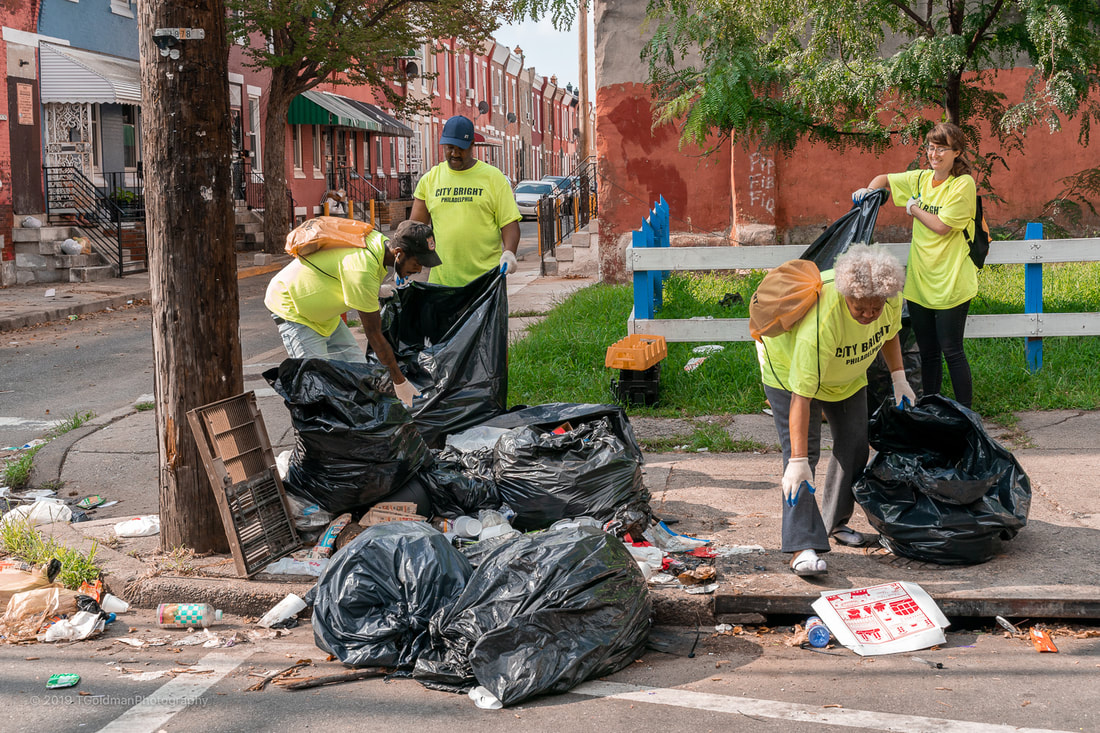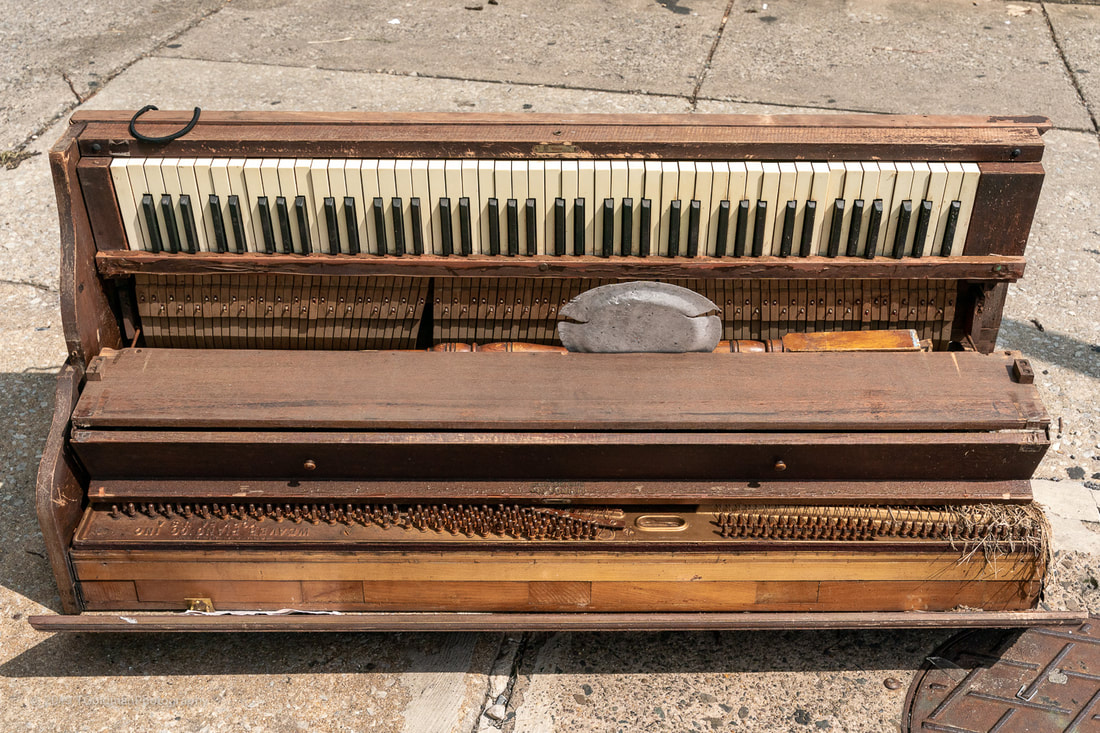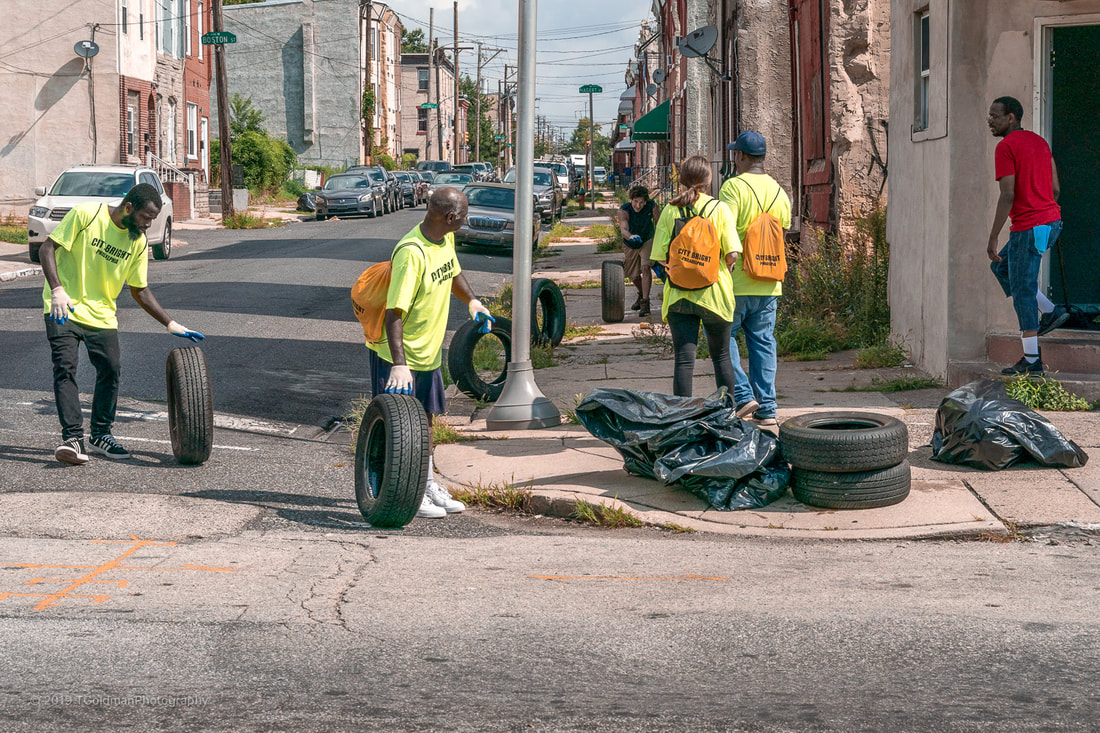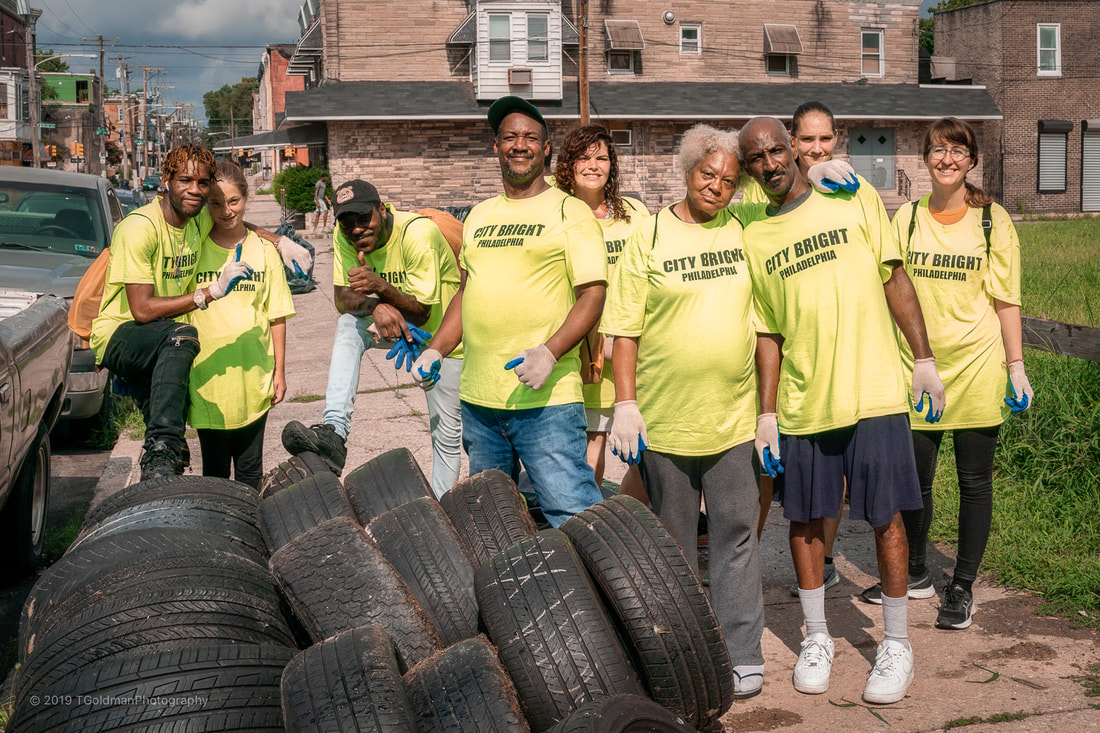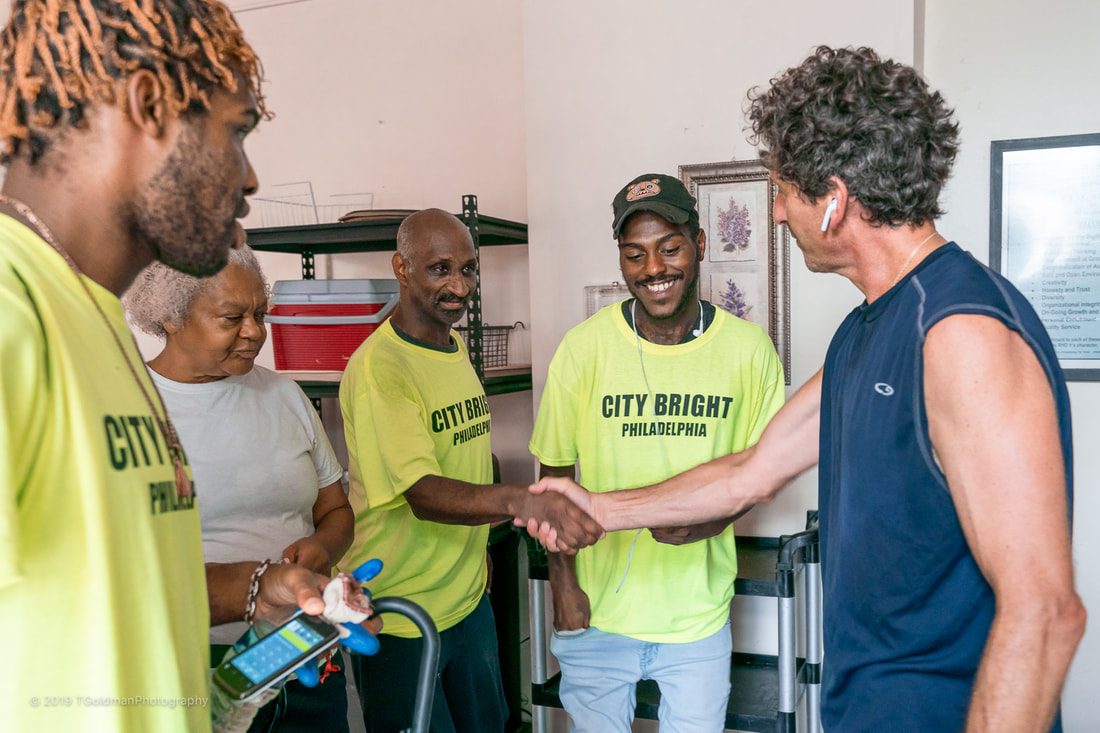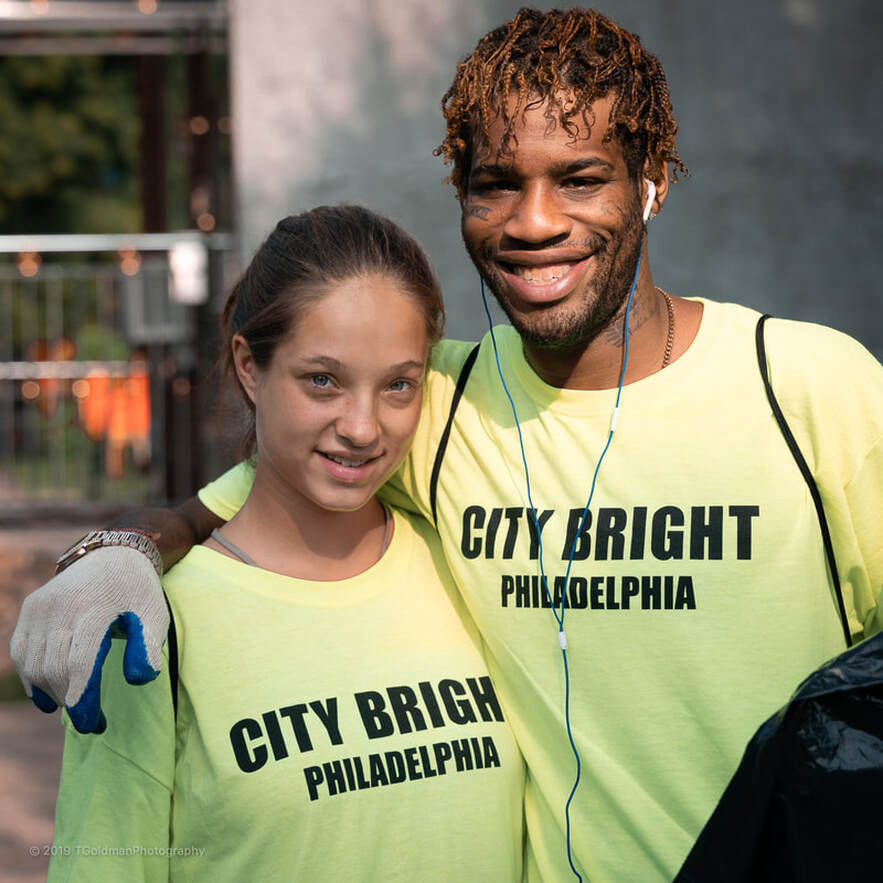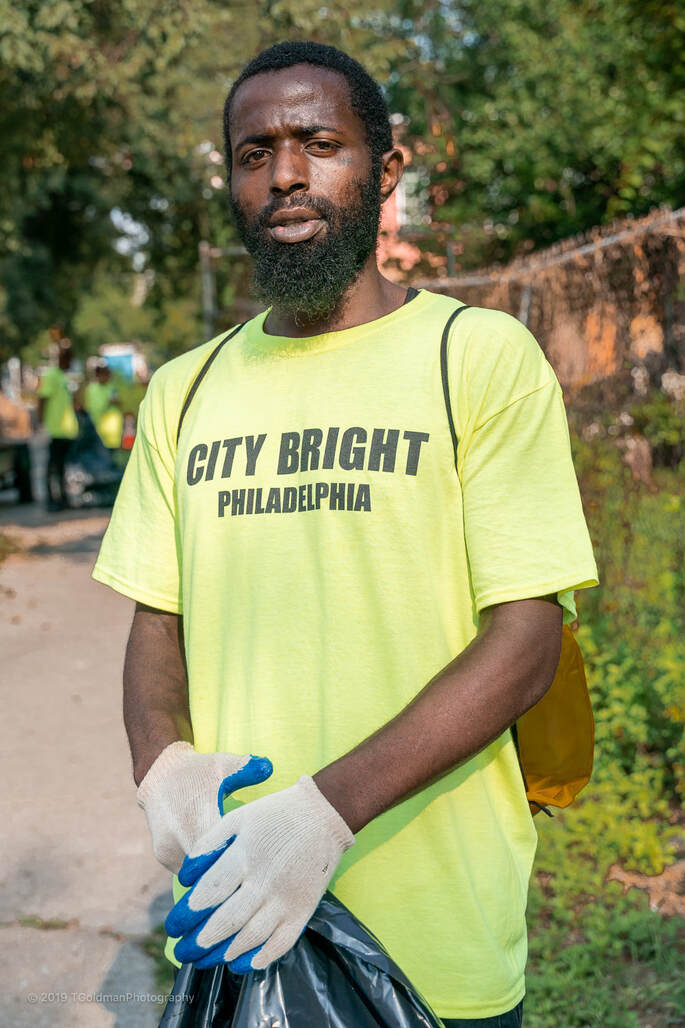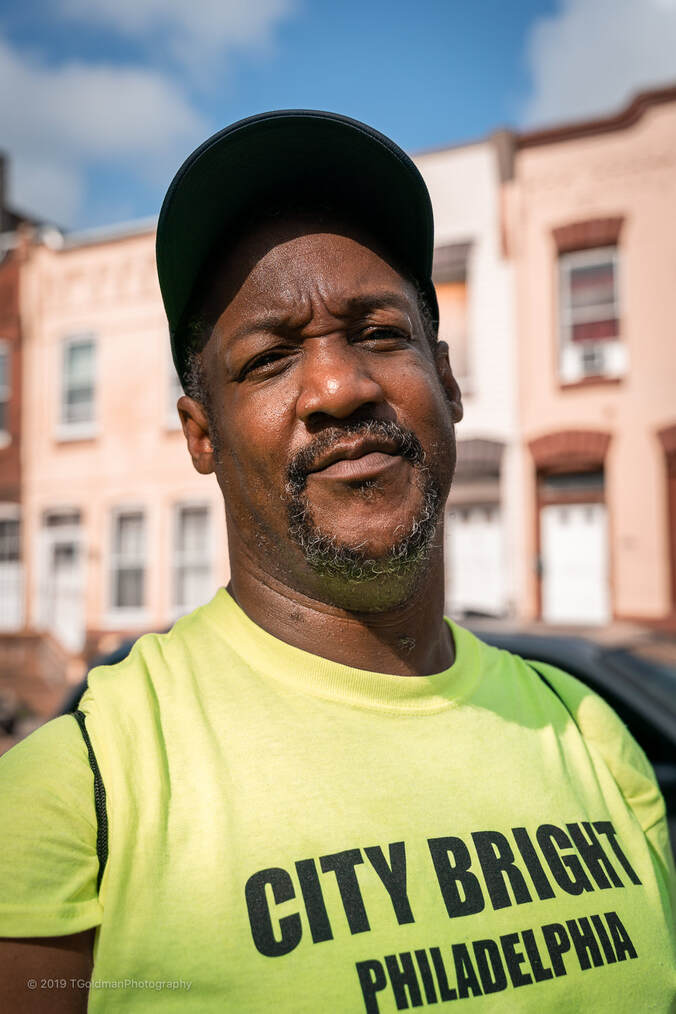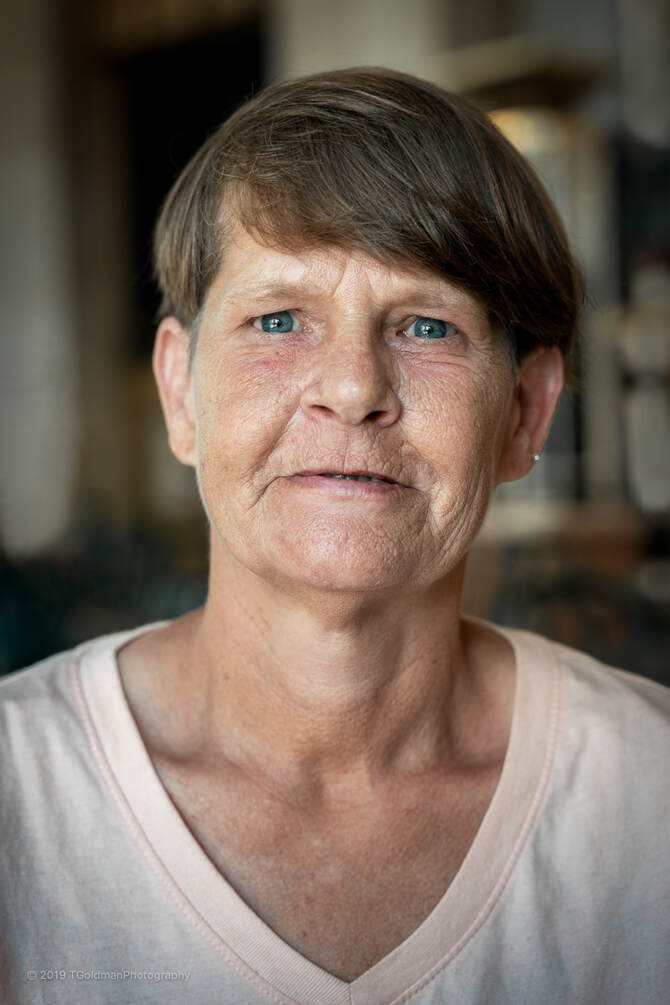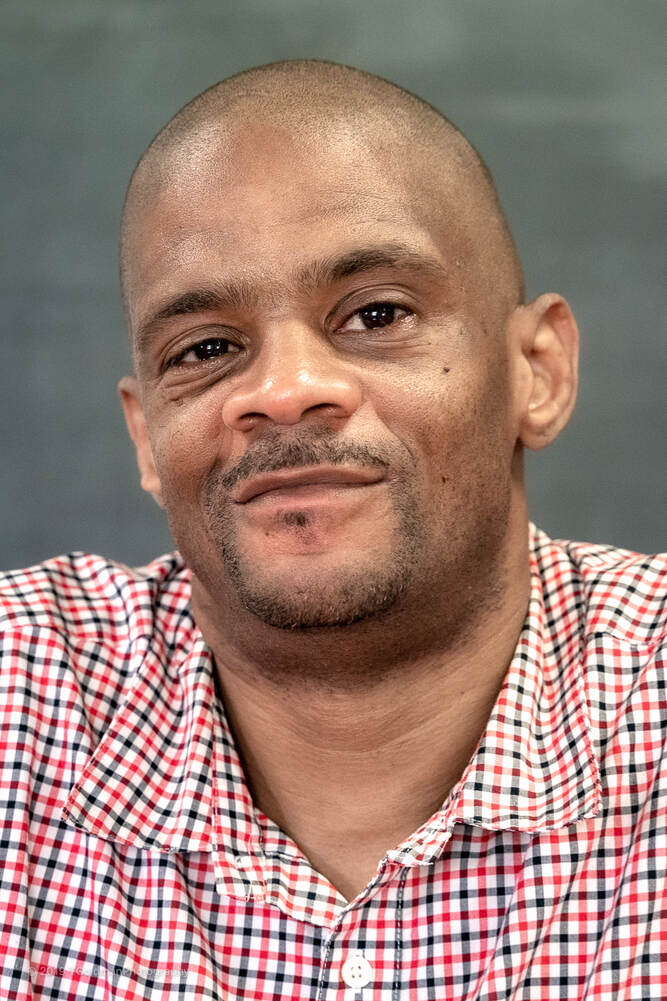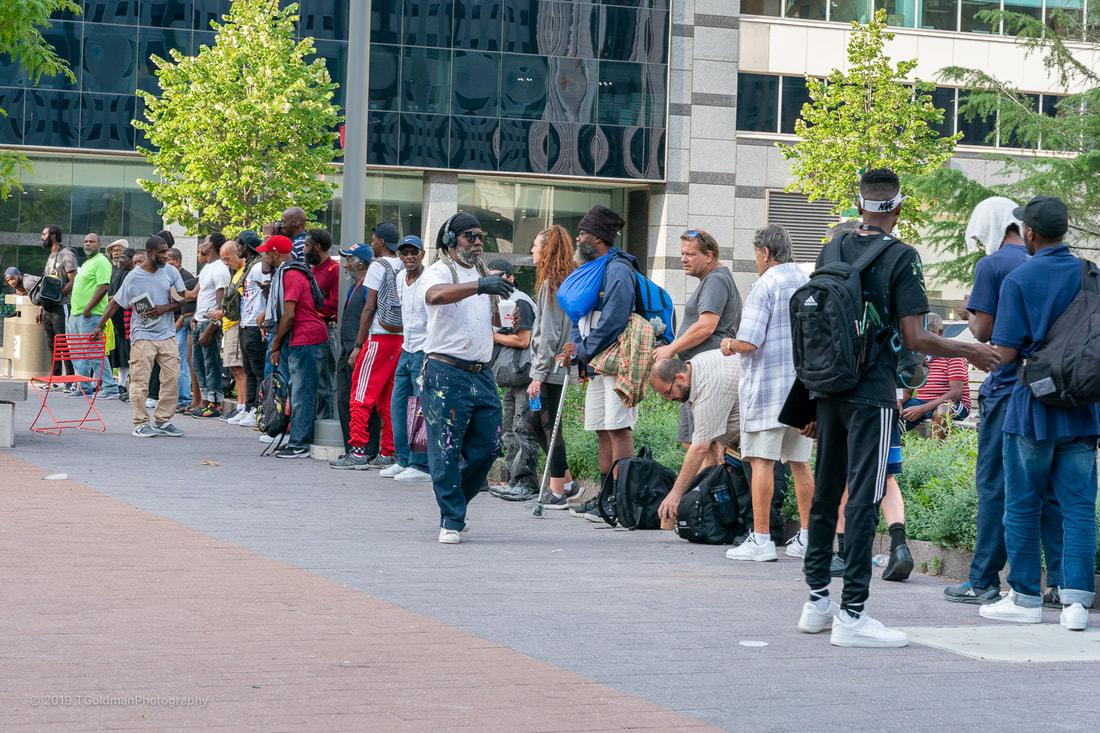Navigating Poverty:
From Homelessness to Independence
From Homelessness to Independence
Part 2- Transition
Preface
This is the second in a series about how people navigate poverty, i.e. how they get their daily needs met, particularly when they spend most of their time on the street, and how they move towards independence if they have the will and can find opportunities. The goal is to educate the public through the words of people who live with poverty.
“Part 1- Living on the Street:” I randomly approached twelve people who appeared to be homeless. Of the eleven who were willing to speak with me, two were recently homeless and seemed frantic about their situations, but had no immediate plans to get off the street. Seven seemed to accept chronic homelessness as their way of life. Only two, who had recently lost their jobs, were very committed to getting back into the workforce and back to independence.
"Part 2- Transition:” This photo essay focuses on people who, having been at the bottom, have come to that moment where they can’t live that way anymore. Making such a life change takes courage because the challenges and barriers are so great. These are the most inspiring people I’ve ever met- I hope you will feel the same way.
Introduction
During the last five years I have met many people who have changed their lives. This connection came through organizations that provide opportunities to people who are ready for transition. In particular there is One Step Away, the Philadelphia street magazine that advocates for people experiencing homelessness and joblessness, and Depaul House, a transitional housing program that helps homeless men find jobs and housing. These are wonderful organizations that help so many people.
More recently I became interested in so called “same day work and pay programs” that offer immediate cash to people willing to work for a few hours. In addition to such programs run by the City of Philadelphia, I became aware of "City Bright Philadelphia" an amazing organization founded by one very dedicated person. This led me to people in transition who could be interviewed for this story.
City Bright Philadelphia
City Bright Philadelphia is the inspiration of Adam Kesselman who made a life commitment to do something about two scars within the City of Philadelphia: homelessness and litter. He realized that these could be connected in a positive way and he took action.
What is City Bright Philadelphia:
Adam: “I’ve been commuting to Philadelphia for 25 years- you walk out of the train station at 7:00am and you see homeless people asking for money, and there is so much litter on the ground… I believe in my heart that a country like the United States and a city like Philadelphia should be able to address these two issues- it shouldn’t be that complex… Two years ago I saw an article about a pastor who was paying homeless people to clean the streets- I called him and he told me all the things he had learned; based on that I created a 501(c)(3) non-profit and called it City Bright Philadelphia; I started raising money through GoFundMe to do cleanups with residents of homeless shelters; from July 2018 to September 2019, we did 37 cleanups with over 1300 participants, each receiving $20 immediate cash pay for 2 1/2 hours of work.”
What is the objective:
Adam: “The objective is to get homeless people into sustainable housing and sustainable financial stability- to get them out of shelters and into jobs where they can afford to pay their rent; by doing so we make more room in shelters for people who are on the street who can’t get in because it can take 1-2 years; so with this process we reduce the number of homeless people on the street.” (NOTE: his focus is on transitional shelters, not emergency shelters, where residents are obliged to look for jobs and permanent housing- by definition these residents are in transition. Through persistence Adam created relationships with many transitional shelters in Philadelphia.) “The only limit to the number of cleanups we can do is funding- most cleanups have 40 participants which costs $1000.”
The objective you describe sounds much larger than a same day work and pay program:
Adam: “We are doing two other things to achieve the objective: #1) I provide recommendations for job interviews to anyone who participates in a cleanup; #2) I encourage employers in Philadelphia to sponsor cleanups and hopefully they are in the type of businesses where they can hire people who have been homeless- we have two examples so far of people who obtained full time jobs as a result of an employer sponsoring a cleanup.”
Cleanup Day
It was early in the morning on a hot August Saturday when Adam picked me up at Philadelphia’s 30th Street Station. This was the first time we met after speaking just once by phone. It took very little time to realize we were both on the same page about ending homelessness in Philadelphia.
His sedan, looking like the “The City Bright Express,” was filed with trash bags, gloves, a leaf blower, and bright yellow City Bright Philadelphia tee-shirts, one for each participant. We quickly got to know each other as he gave me a tour of North Philadelphia. I saw decay and abandonment that was offset by upscale development, neither of which does anything to end homelessness. As we drove, Adam typed locations into a City of Philadelphia website that will send trash trucks and collect abandoned vehicles.
Our destination was a couples shelter in North Philadelphia where about 10-15 residents were available for the cleanup.
Adam gave a quick orientation to the participants and introduced me as “a photojournalist who is doing a story about homelessness.” There was another guest as well: a Ph.D. student who is doing her dissertation about litter in cities. For Adam, the more that people understand about both the problems and the opportunities, the greater the likelihood of finding solutions.
I conducted brief interviews during the cleanup and followed up with in depth interviews at a later date with other City Bright Philadelphia participants. There is absolutely no comparison between the motivation of these people to that of the people I met on the street who seemed to accept their chronic homelessness. What I want to understand most of all is: What is the spark that moves people into transition?
The cleanup team had to deal with an enormous amount of trash.
Beyond household trash there were items that were well beyond the capabilities of the team- Adam entered these into the city website.
And there were tires- lots of them. Adam (background) led the “City Bright Philadelphia Tire Relay.” Team members had to be quick on their feet to keep up!
During a well deserved break, a group assembled for a photo- they showed their pride.
At the end of the cleanup, Adam shook the hand of every participant as he presented their well deserved pay. Beyond the work and the pay, Adam’s greatest gift is letting participants know that they are valued- something that will help sustain them as they navigate their way to independence.
Brief Interviews During the Cleanup
Giorgio with Sara: “Some days I felt like giving up but I had a reason to keep going and now I have two reasons to keep going.”
Your story: “Sara and I have been married for a year and a half; we were homeless living in a tent and just got into this shelter about one month ago.”
What was the moment when you decided you wanted a better life: “On some days I felt like giving up but I had a reason to keep going and now I have two reasons to keep going; I’m working hard to find a better way for me and my wife and our little girl who will arrive next month- my goal is to be out of here when the baby is born; I’m hoping to make a better future for my daughter so that she won’t ever have to know the struggle- I don’t want my child to ever want for anything!”
What was the moment when you decided you wanted a better life: “On some days I felt like giving up but I had a reason to keep going and now I have two reasons to keep going; I’m working hard to find a better way for me and my wife and our little girl who will arrive next month- my goal is to be out of here when the baby is born; I’m hoping to make a better future for my daughter so that she won’t ever have to know the struggle- I don’t want my child to ever want for anything!”
Larry: “I can go back selling drugs but why would I do that and lose everything that I’ve work so hard to get like my own house.”
Your story: “I lived in the park and all that; it was a terrible life and it was time for a change- not everybody wants change, it’s all up to you to make change and I’m changing my life.”
What was the moment when you decided you wanted a better life: “I got two kids so I have to change my life- I got a son 7 and a daughter a couple of months old, so I got to change my ways; instead of coming out here and selling drugs I rather be out here doing these cleanups and I’m trying to get a permanent job; I can go back selling drugs but why would I do that and lose everything that I’ve work so hard to get like my own house; the only rule I got to deal with is making sure my house is clean.”
What are the triggers that could pull you back down: “I don’t let my past and being homeless take control of me… me personally- I love giving back.”
What was the moment when you decided you wanted a better life: “I got two kids so I have to change my life- I got a son 7 and a daughter a couple of months old, so I got to change my ways; instead of coming out here and selling drugs I rather be out here doing these cleanups and I’m trying to get a permanent job; I can go back selling drugs but why would I do that and lose everything that I’ve work so hard to get like my own house; the only rule I got to deal with is making sure my house is clean.”
What are the triggers that could pull you back down: “I don’t let my past and being homeless take control of me… me personally- I love giving back.”
James: “I came home in 2012 after doing 10 years and decided I wanted my life back.”
Your story: “I have degrees- a degree in sociology and I’m a peer support specialist- I had all these things under my belt but wasn’t utilizing it… I was homeless on and off for about 27 years- between addiction and going to jail I was out there for a while.”
What was the moment when you decided you wanted a better life: “I came home in 2012 after doing 10 years and decided I wanted my life back… I met my fiancee and we ended up coming to the couple’s shelter and we were there for 6 months and 10 days and then we got our own place- we’ve been there since April; I’m the grounds keeper and maintenance man in the building we live in… Now I’m trying to start a resource business for people because I’ve been through it, and I can show people trying to make the transition from here to being on their own- no one is telling people what’s out there that can help them.”
What are the triggers that could pull you back down: “Some days I have to get on the phone and call people to talk about what I’m going through… A friend of mine wrote a post on Facebook- I wrote a response that concerned him so we talked on the phone for two hours and after that I felt better… They tell you that when you are in recovery you get a toolbox and if you don’t utilize it you’re going to relapse; you’ve got to identify your triggers and your stress level and keep yourself from your limit; I had some toxic people around me and I had to get rid of them so that I could be myself; my friends are the people I can talk to and say that I’m going through something and they say: ‘Wait right there, I’m coming over,’ and it has to be right now because I could take a hit or a drink and in an hour I could be dead; I knew people who were clean for a year and they took one hit and they died right there- you been out of it for so long that your body can’t handle it anymore.”
What was the moment when you decided you wanted a better life: “I came home in 2012 after doing 10 years and decided I wanted my life back… I met my fiancee and we ended up coming to the couple’s shelter and we were there for 6 months and 10 days and then we got our own place- we’ve been there since April; I’m the grounds keeper and maintenance man in the building we live in… Now I’m trying to start a resource business for people because I’ve been through it, and I can show people trying to make the transition from here to being on their own- no one is telling people what’s out there that can help them.”
What are the triggers that could pull you back down: “Some days I have to get on the phone and call people to talk about what I’m going through… A friend of mine wrote a post on Facebook- I wrote a response that concerned him so we talked on the phone for two hours and after that I felt better… They tell you that when you are in recovery you get a toolbox and if you don’t utilize it you’re going to relapse; you’ve got to identify your triggers and your stress level and keep yourself from your limit; I had some toxic people around me and I had to get rid of them so that I could be myself; my friends are the people I can talk to and say that I’m going through something and they say: ‘Wait right there, I’m coming over,’ and it has to be right now because I could take a hit or a drink and in an hour I could be dead; I knew people who were clean for a year and they took one hit and they died right there- you been out of it for so long that your body can’t handle it anymore.”
In Depth Interviews
Kim: “I used to walk with my head down all the time but I don’t do that anymore.”
Kim had a 40 year history with alcohol and a family dispute that put her out of her home. A stay at a homeless shelter combined with her faith put her on a transition to a better life.
Your story: “My daughter couldn’t take care of my two grand babies so I moved to Philly with them; when she came to take the kids back she made a ruckus so I got put out… Those babies are my world; the state took the kids so now I have no grandparent rights even though I basically raised them… When I lost my house last year I was dazed and confused for a few weeks- I lived on the street for three months.”
Were drugs an issue: “Alcohol was very much of an issue for most of my life- it brought me down; when I was drinking I stayed drunk because I didn’t want to think and I didn’t want to feel- it numbed everything but that isn’t the way it’s supposed to work.”
Where are you living: “I was in rehab and then I put myself into a crisis center which is how I ended up at the women’s shelter; now that I’m in the shelter I feel better than I have in 40 years; I never looked into a mirror until I came into the shelter- I never wore a dress until I came into the shelter- the shelter made me feel at peace; the alcohol definitely held me back and kept me down since I was 11.”
Do you consider yourself to be in transition: “I am very much moving to a better place and I feel confident about it which I never had before; I used to walk with my head down all the time but I don’t do that anymore; I’m surprised at myself and sad my mom’s not here to see me doing right because she saw all the bad- but she’s with me now.”
What was the moment when you decided you wanted a better life: “It was God that turned me around, and he had been trying for many years; I’ve been going to church for a long time but it only just clicked about a month ago: ’It’s over, I can’t do this anymore!’ ... At the shelter I was seeing people being ungrateful and I knew I didn’t want to be like that- I didn’t want to be so low that I couldn’t get back up.”
What are the triggers that could pull you back down: “The only thing that can do that is when I think about my grand babies- that’s the only thing the devil can get me with- nothing else bothers me; I have to put my grand babies out of my mind- it’s sad but I have to, but I know I will see them again and that helps; and I’m done with alcohol.”
What are your hopes for the future: “A year from now I hope to have my own place and a job; I want to keep doing good and feeling good like I am right now.”
Your story: “My daughter couldn’t take care of my two grand babies so I moved to Philly with them; when she came to take the kids back she made a ruckus so I got put out… Those babies are my world; the state took the kids so now I have no grandparent rights even though I basically raised them… When I lost my house last year I was dazed and confused for a few weeks- I lived on the street for three months.”
Were drugs an issue: “Alcohol was very much of an issue for most of my life- it brought me down; when I was drinking I stayed drunk because I didn’t want to think and I didn’t want to feel- it numbed everything but that isn’t the way it’s supposed to work.”
Where are you living: “I was in rehab and then I put myself into a crisis center which is how I ended up at the women’s shelter; now that I’m in the shelter I feel better than I have in 40 years; I never looked into a mirror until I came into the shelter- I never wore a dress until I came into the shelter- the shelter made me feel at peace; the alcohol definitely held me back and kept me down since I was 11.”
Do you consider yourself to be in transition: “I am very much moving to a better place and I feel confident about it which I never had before; I used to walk with my head down all the time but I don’t do that anymore; I’m surprised at myself and sad my mom’s not here to see me doing right because she saw all the bad- but she’s with me now.”
What was the moment when you decided you wanted a better life: “It was God that turned me around, and he had been trying for many years; I’ve been going to church for a long time but it only just clicked about a month ago: ’It’s over, I can’t do this anymore!’ ... At the shelter I was seeing people being ungrateful and I knew I didn’t want to be like that- I didn’t want to be so low that I couldn’t get back up.”
What are the triggers that could pull you back down: “The only thing that can do that is when I think about my grand babies- that’s the only thing the devil can get me with- nothing else bothers me; I have to put my grand babies out of my mind- it’s sad but I have to, but I know I will see them again and that helps; and I’m done with alcohol.”
What are your hopes for the future: “A year from now I hope to have my own place and a job; I want to keep doing good and feeling good like I am right now.”
Sally: (No image) “I woke up one day and said that I have to move on- I cannot be here over the holidays.”
Her homelessness came as the result of an accident that took her out of the workforce for a year. After unemployment ran out, she lost everything. An uncomfortable stay in a shelter combined with a very supportive organization put her in transition to regain her independence.
Your story: “This was my first time in poverty- I was gainfully employed for many years; I had a slip and fall and broke three ankle bones and got a bad infection; after being out of work for a year I lost my apartment; the injury was about a year ago and I lost my apartment and everything about six months ago.”
Were drugs an issue: “I’ve never been on drugs.”
Where are you living: “I stayed with a friend for a while but was eventually forced into a homeless shelter- I actually did spend two nights on the street which was scary; I went into the women’s shelter two months ago.”
Sally’s experience has left her feeling that Philadelphia does not care about homeless people. She was told that because she didn’t have a history of drug abuse or mental illness, that she didn’t qualify for housing. Through persistence she was able to get into the women’s shelter.
Do you consider yourself to be in transition: “The first month I was definitely down, but I’m a positive and happy person and it was time to reset; after a couple weeks I knew I had to get out of this situation- there are people from all walks of life in the shelter and it’s scary; some people there are on drugs and some have mental health issues and they are all in the same facility.”
What was the moment when you decided you wanted a better life: “I woke up one day and said that I have to move on- I cannot be here over the holidays.”
What are the triggers that could pull you back down: “Some mornings you wake up and recognize where you are, especially if you’ve never been there before; for some people this is reoccurring so they’re acclimated to it, but for me this was the first time; I’ve had career success in the past and I know I can do it, but I had to remind myself.”
What are your hopes for the future: “I first want to tell you about an organization that was the one bright spot of this whole experience: Back on My Feet (‘… combats homelessness through the power of running…’); so now I’m a runner and doing marathons; if you run with them or walk at your own pace, they will help you with a security deposit- they start offering services after you’ve completed 25 miles, and they do training like Microsoft Office Certification- they’re great; we run three days a week at 5:30 in the morning; it’s so positive to be treated like a person because you get degraded in the shelter.”
“A year from now I will be in my own place, gainfully employed, and planning a trip to Florida; there are family members that I want to connect with, I just don’t want to disrupt their life with my drama right now.”
Your story: “This was my first time in poverty- I was gainfully employed for many years; I had a slip and fall and broke three ankle bones and got a bad infection; after being out of work for a year I lost my apartment; the injury was about a year ago and I lost my apartment and everything about six months ago.”
Were drugs an issue: “I’ve never been on drugs.”
Where are you living: “I stayed with a friend for a while but was eventually forced into a homeless shelter- I actually did spend two nights on the street which was scary; I went into the women’s shelter two months ago.”
Sally’s experience has left her feeling that Philadelphia does not care about homeless people. She was told that because she didn’t have a history of drug abuse or mental illness, that she didn’t qualify for housing. Through persistence she was able to get into the women’s shelter.
Do you consider yourself to be in transition: “The first month I was definitely down, but I’m a positive and happy person and it was time to reset; after a couple weeks I knew I had to get out of this situation- there are people from all walks of life in the shelter and it’s scary; some people there are on drugs and some have mental health issues and they are all in the same facility.”
What was the moment when you decided you wanted a better life: “I woke up one day and said that I have to move on- I cannot be here over the holidays.”
What are the triggers that could pull you back down: “Some mornings you wake up and recognize where you are, especially if you’ve never been there before; for some people this is reoccurring so they’re acclimated to it, but for me this was the first time; I’ve had career success in the past and I know I can do it, but I had to remind myself.”
What are your hopes for the future: “I first want to tell you about an organization that was the one bright spot of this whole experience: Back on My Feet (‘… combats homelessness through the power of running…’); so now I’m a runner and doing marathons; if you run with them or walk at your own pace, they will help you with a security deposit- they start offering services after you’ve completed 25 miles, and they do training like Microsoft Office Certification- they’re great; we run three days a week at 5:30 in the morning; it’s so positive to be treated like a person because you get degraded in the shelter.”
“A year from now I will be in my own place, gainfully employed, and planning a trip to Florida; there are family members that I want to connect with, I just don’t want to disrupt their life with my drama right now.”
Bonus Interview
I couldn’t do a story about transition without including my friend Broderick Green. I met Broderick at Depaul House, a transitional housing program that helps homeless men find jobs and housing.
Broderick’s story shows that the path from homelessness to independence is not necessarily a straight line, but there can setbacks as well. He may be in a perpetual state of transition where he wins a round and addiction wins another round. His fall into addiction began in 1992 at 22 when his mother died: "I pretty much checked out.”
Broderick became a resident at Depaul House in 2011. Addiction followed him through the process and after graduation he fully relapsed. The beauty of Depaul House is that the staff never gives up on anyone. In 2015 Broderick was hired for a peer support position but this lasted only until addiction took over yet again.
In 2019 he was again hired by Depaul. Not only is he now flourishing at Depaul House, he has a leadership role within Philadelphia’s Office of Homeless Services. Broderick is on the Continuum of Care Board as well as Co-Chair of the Lived Experience Commission: “We decide how money is allocated to city shelters.”… Broderick’s progress and success are remarkable, yet so fragile.
Broderick Green: He is very emotional, often tearing up when he talks about what he has gone through and where he is today. “In the last two months my life has changed dramatically; I found myself again- my family life is good, my love life is good, my housing is good, and I have a new grand daughter.”
You had such a great opportunity when you were first hired by Depaul, what happened: “I was telling people to get clean from drugs, and then I go home and do drugs myself- that weighed on me… I didn’t want to keep putting my supervision through giving me one chance after another, so I left; but all I could think about after that was Depaul because I truly believe that this is where I’m supposed to be… After I left I was in free-fall.”
What was the moment when you decided you wanted a better life: “The main thing is that I realized this is not who I am and this isn’t where I’m supposed to be… Once the drugs are out of my system, everything is going to be OK.”
Where are you today: “In the last two months my life has changed dramatically; I found myself again- my family life is good, my love life is good, my housing is good, and I have a new grand daughter… I love coming to work at Depaul House where I’m Support Staff- I help residents find jobs and apartments.”
Right now you have so much going for you- if you started thinking about drugs, would the thought of losing it all hold you back: “It would be harder for me because there is so much that I do have… The best part of the boards I’m on is that they listen to me and they hear me- it’s definitely a booster to my self esteem which really helps.”
Broderick demonstrates just how challenging transition can be, particularly for someone who has addiction tugging at his heals. Hopefully the validation he’s getting from his personal and professional lives will insulate him form further attacks.
What was the moment when you decided you wanted a better life: “The main thing is that I realized this is not who I am and this isn’t where I’m supposed to be… Once the drugs are out of my system, everything is going to be OK.”
Where are you today: “In the last two months my life has changed dramatically; I found myself again- my family life is good, my love life is good, my housing is good, and I have a new grand daughter… I love coming to work at Depaul House where I’m Support Staff- I help residents find jobs and apartments.”
Right now you have so much going for you- if you started thinking about drugs, would the thought of losing it all hold you back: “It would be harder for me because there is so much that I do have… The best part of the boards I’m on is that they listen to me and they hear me- it’s definitely a booster to my self esteem which really helps.”
Broderick demonstrates just how challenging transition can be, particularly for someone who has addiction tugging at his heals. Hopefully the validation he’s getting from his personal and professional lives will insulate him form further attacks.
Final Thoughts
The question is: What is the spark that moves people into transition? And what keeps them there since transition is so fraught with risk of falling back? This is what people said:
“I want my life back; this is not who I am.”
“On some days I felt like giving up but I had a reason to keep going and now I have two reasons to keep going.”
“I got two kids so I have to change my life.”
“I came home in 2012 after doing 10 years and decided I wanted my life back.”
“It’s over, I can’t do this anymore.”
“I woke up one day and said that I have to move on.”
“The main thing is that I realized this is not who I am and this isn’t where I’m supposed to be.”
It’s so easy to be in awe of people who take on transition, to applaud their strength, and to hope for their success. But what of the people who are content with their homelessness, do we criticize their weakness and despair of their failure? Who are we to say they shouldn’t live that way? At the same time is it OK to object to society’s resources being used to support people who might otherwise support themselves? But it’s so much more complicated than that because of mental illness, drug abuse and lack of resources.
How can society encourage more people to move into transition- to take the risk? I’m no expert, but I am an observer. The one concept that jumps out is same day work and pay programs. While City Bright Philaelphia focuses on people already in transition, programs run by the City of Philadelphia attract a broad range of people including those who live on the street and in emergency shelters.
People line up in Philadelphia's Love Park four days a week for a lottery that will select 10 people for a current arts project and 10 for street cleaning, and sadly will turn away many more.
Every one of these people is ready for some level of transition, if given the chance. The boost in self esteem that comes from working can be a reinforcer to keep trying, at least that’s the way it looks. And there is the disappointment in the eyes of those not chosen- yet another rejection. I would love to see many more of these programs.
One More Thing
In Part 1 I encouraged readers to reach out to people on the street: say hello, give $1 or maybe a meal from a fast food restaurant or food cart- a small act of kindness that can mean so much.
For those willing to kick it up a notch, please consider supporting City Bright Philadelphia. Just $20 pays a person in transition for a morning’s work, makes the city a little bit brighter, and keeps Adam’s dream alive…. www.gofundme.com/f/city-bright-philadelphia.
End
Published October 31, 2019

